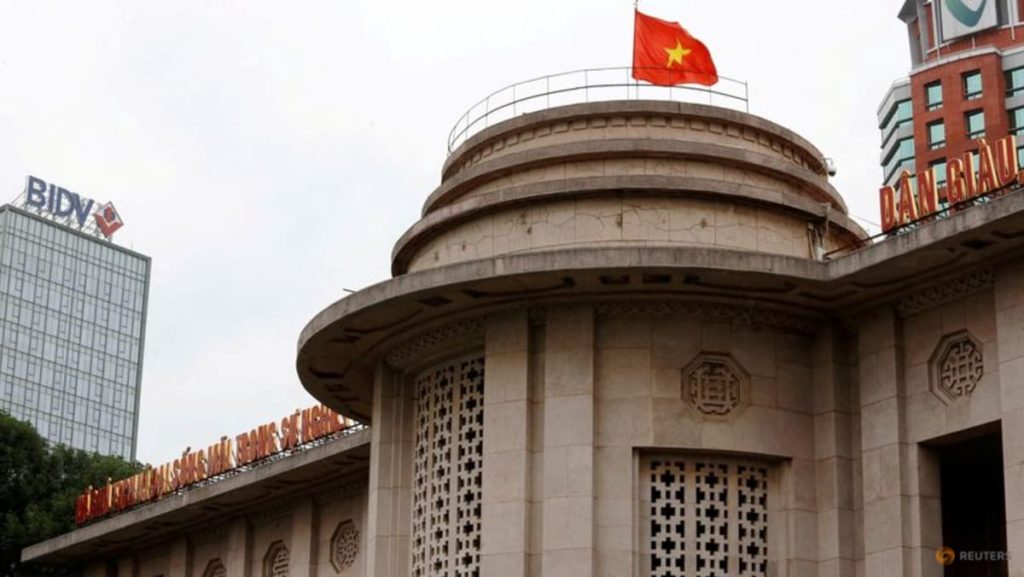The Vietnamese authorities have dismantled a sophisticated money laundering operation that funneled an estimated US$1.2 billion (S$1.6 billion) of illicit funds into the country. This elaborate scheme, active between 2022 and 2024, involved the creation of a complex network of shell companies and bank accounts, facilitated by complicit bank employees. The perpetrators forged identification documents and bank seals to establish 187 fictitious businesses and open over 600 associated corporate bank accounts. These accounts served as conduits for laundering money derived from fraudulent activities and overseas gambling operations. The scale of the operation highlights the growing challenge of combating financial crime in Vietnam and the increasing sophistication of criminal networks. This case underscores the vulnerabilities within the financial system, particularly the potential for insider involvement and the exploitation of regulatory loopholes.
The arrests of five individuals, including a bank employee, in the central coastal city of Danang mark a significant victory for Vietnamese law enforcement. This operation represents the largest money laundering case ever uncovered in Danang, signaling the increasing prevalence of such activities in the region. The seizure of 122 counterfeit seals and 40 original business registration certificates provides crucial evidence of the elaborate measures taken by the criminal ring to legitimize their operations and conceal the origin of the illicit funds. The involvement of a bank employee raises concerns about internal controls within financial institutions and the potential for individuals to exploit their positions for personal gain. This case highlights the need for enhanced vigilance and stricter regulations within the banking sector to prevent similar incidents in the future.
The dismantling of this money laundering ring follows the high-profile conviction of Vietnamese property tycoon Truong My Lan, who was sentenced to life imprisonment for money laundering. While Lan is appealing the verdict, her case and the recent arrests in Danang demonstrate the Vietnamese government’s commitment to tackling financial crime and holding perpetrators accountable. These cases underscore the significant risks associated with money laundering, both for individuals involved and the broader financial system. The successful prosecution of high-profile figures like Lan sends a strong message of deterrence and reinforces the importance of upholding the rule of law in the financial sector.
The complexity of the Danang money laundering operation reveals the evolving nature of financial crime. The use of shell companies, forged documents, and complicit insiders highlights the sophisticated methods employed by criminal organizations to circumvent regulations and launder illicit funds. This case emphasizes the need for ongoing vigilance and proactive measures by law enforcement and financial institutions to stay ahead of these evolving tactics. The scale of the operation also suggests the potential involvement of international criminal networks, further complicating the investigation and highlighting the need for international cooperation in combating transnational financial crime.
The US$1.2 billion laundered through this operation represents a significant loss to the legitimate economy and underscores the detrimental impact of financial crime on society. Money laundering facilitates other criminal activities, including drug trafficking, terrorism financing, and corruption, undermining the integrity of financial systems and eroding public trust. The successful dismantling of this operation demonstrates the importance of robust law enforcement efforts and the need for continuous improvement in anti-money laundering measures. The case also highlights the importance of public awareness and education to prevent individuals from unknowingly becoming involved in such schemes.
The Vietnamese government’s ongoing efforts to combat money laundering are crucial for maintaining the stability and integrity of the country’s financial system. The arrests in Danang and the conviction of Truong My Lan represent significant steps forward in this fight. However, the increasing sophistication of criminal networks necessitates continuous vigilance, enhanced international cooperation, and the strengthening of regulatory frameworks. The successful prosecution of these cases serves as a deterrent and reinforces the message that financial crime will not be tolerated. The focus on combating money laundering is essential for fostering a healthy and transparent financial environment, protecting the economy, and upholding the rule of law.

